Fleurs du Mal Magazine


Or see the index
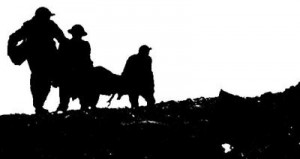
Georg Trakl
(1887 – 1914)
Grodek
Am Abend tönen die herbstlichen Wälder
Von tödlichen Waffen, die goldnen Ebenen
Und blauen Seen, darüber die Sonne
Düster hinrollt; umfängt die Nacht
Sterbende Krieger, die wilde Klage
Ihrer zerbrochenen Münder.
Doch stille sammelt im Weidengrund
Rotes Gewölk, darin ein zürnender Gott wohnt,
Das vergossne Blut sich, mondne Kühle;
Alle Straßen münden in schwarze Verwesung.
Unter goldnem Gezweig der Nacht und Sternen
Es schwankt der Schwester Schatten durch den schweigenden Hain,
Zu grüßen die Geister der Helden, die blutenden Häupter;
Und leise tönen im Rohr die dunkeln Flöten des Herbstes.
O stolzere Trauer! ihr ehernen Altäre,
Die heiße Flamme des Geistes nährt heute ein gewaltiger Schmerz,
Die ungebornen Enkel.
Georg Trakl poetry
fleursdumal.nl magazine
More in: Archive S-T, Trakl, Georg, Trakl, Georg
Julian Grenfell
(1888 – 1915)
INTO BATTLE
The naked earth is warm with spring,
And with green grass and bursting trees
Leans to the sun’s gaze glorying,
And quivers in the sunny breeze;
And life is colour and warmth and light,
And a striving evermore for these;
And he is dead who will not fight;
And who dies fighting has increase.
The fighting man shall from the sun
Take warmth, and life from the glowing earth;
Speed with the light-foot winds to run,
And with the trees to newer birth;
And find, when fighting shall be done,
Great rest and fullness after dearth.
All the bright company of Heaven
Hold him in their high comradeship,
The Dog-Star, and the Sisters Seven,
Orion’s Belt and sworded hip.
The woodland trees that stand together,
They stand to him each one a friend;
They gently speak in the windy weather;
They guide to valley and ridge’s end.
The kestrel hovering by day,
And the little owls that call by night,
Bid him be swift and keen as they,
As keen of ear, as swift of sight.
The blackbird sings to him, ‘Brother, brother,
If this be the last song you shall sing,
Sing well, for you may not sing another;
Brother, sing.’
In dreary, doubtful, waiting hours,
Before the brazen frenzy starts,
The horses show him nobler powers;
O patient eyes, courageous hearts!
And when the burning moment breaks,
And all things else are out of mind,
And only Joy of Battle takes
Him by the throat, and makes him blind,
Through joy and blindness he shall know,
Not caring much to know, that still
Nor lead nor steel shall reach him, so
That it be not the Destined Will.
The thundering line of battle stands,
And in the air Death moan and sings;
But Day shall clasp him with strong hands,
And Night shall fold him in soft wings.
Julian Grenfell poetry
fleursdumal.nl magazine
More in: Archive G-H, Greenfel, Julian

The Sorrows of Young Werther (63) by J.W. von Goethe
“The grief of all arose, but most the bursting sigh of Armin. He
remembers the death of his son, who fell in the days of his youth.
Carmor was near the hero, the chief of the echoing Galmal. Why burst the
sigh of Armin? he said. Is there a cause to mourn? The song comes with
its music to melt and please the soul. It is like soft mist that, rising
from a lake, pours on the silent vale; the green flowers are filled with
dew, but the sun returns in his strength, and the mist is gone. Why art
thou sad, O Armin, chief of sea-surrounded Gorma?
“Sad I am! nor small is my cause of woe! Carmor, thou hast lost no son;
thou hast lost no daughter of beauty. Colgar the valiant lives, and
Annira, fairest maid. The boughs of thy house ascend, O Carmor! but
Armin is the last of his race. Dark is thy bed, O Daura! deep thy sleep
in the tomb! When shalt thou wake with thy songs? with all thy voice of
music?
“Arise, winds of autumn, arise: blow along the heath. Streams of the
mountains, roar; roar, tempests in the groves of my oaks! Walk through
broken clouds, O moon! show thy pale face at intervals; bring to my mind
the night when all my children fell, when Arindal the mighty fell–when
Daura the lovely failed. Daura, my daughter, thou wert fair, fair as
the moon on Fura, white as the driven snow, sweet as the breathing gale.
Arindal, thy bow was strong, thy spear was swift on the field, thy look
was like mist on the wave, thy shield a red cloud in a storm! Armar,
renowned in war, came and sought Daura’s love. He was not long refused:
fair was the hope of their friends.
“Erath, son of Odgal, repined: his brother had been slain by Armar. He
came disguised like a son of the sea: fair was his cliff on the wave,
white his locks of age, calm his serious brow. Fairest of women, he
said, lovely daughter of Armin! a rock not distant in the sea bears
a tree on its side; red shines the fruit afar. There Armar waits for
Daura. I come to carry his love! she went she called on Armar. Nought
answered, but the son of the rock. Armar, my love, my love! why
tormentest thou me with fear? Hear, son of Arnart, hear! it is Daura who
calleth thee. Erath, the traitor, fled laughing to the land. She lifted
up her voice–she called for her brother and her father. Arindal! Armin!
none to relieve you, Daura.
“Her voice came over the sea. Arindal, my son, descended from the hill,
rough in the spoils of the chase. His arrows rattled by his side; his
bow was in his hand, five dark-gray dogs attended his steps. He saw
fierce Erath on the shore; he seized and bound him to an oak. Thick wind
the thongs of the hide around his limbs; he loads the winds with his
groans. Arindal ascends the deep in his boat to bring Daura to land.
Armar came in his wrath, and let fly the gray-feathered shaft. It sung,
it sunk in thy heart, O Arindal, my son! for Erath the traitor thou
diest. The oar is stopped at once: he panted on the rock, and expired.
What is thy grief, O Daura, when round thy feet is poured thy brother’s
blood. The boat is broken in twain. Armar plunges into the sea to rescue
his Daura, or die. Sudden a blast from a hill came over the waves; he
sank, and he rose no more.
“Alone, on the sea-beat rock, my daughter was heard to complain;
frequent and loud were her cries. What could her father do? All night I
stood on the shore: I saw her by the faint beam of the moon. All night
I heard her cries. Loud was the wind; the rain beat hard on the hill.
Before morning appeared, her voice was weak; it died away like the
evening breeze among the grass of the rocks. Spent with grief, she
expired, and left thee, Armin, alone. Gone is my strength in war, fallen
my pride among women. When the storms aloft arise, when the north lifts
the wave on high, I sit by the sounding shore, and look on the fatal
rock.
“Often by the setting moon I see the ghosts of my children; half
viewless they walk in mournful conference together.”
The Sorrows of Young Werther (Die Leiden des jungen Werther) by J.W. von Goethe. Translated by R.D. Boylan.
To be continued
fleursdumal.nl magazine
More in: -Die Leiden des jungen Werther, Goethe, Johann Wolfgang von
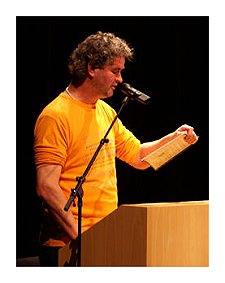
Uitgeverij Hoenderbossche Verzen nodigt u van harte uit voor de presentatie van Een Wak in de Werkelijkheid de nieuwe dichtbundel van Maarten van den Elzen. Deze elfde dichtbundel van Maarten van den Elzen is door Genoveef Lukassen geheel in zeefdruk uitgevoerd, zij zorgt zoals gewoonlijk ook voor de grafische vormgeving.
‘Een Wak in de Werkelijkheid’ kent twee presentaties.
Op 9 oktober 2014 werd de dichtbundel gepresenteerd in Uden.
De tweede presentatie vindt plaats op zaterdag 25 oktober 2014 tussen 15.00 – 17.00 uur in de Nijmeegse Stadsbibliotheek, in het Poëziecentrum Nederland (van Wim van Til).
In Nijmegen zijn het Ton Verbeeten (journalist/publicist) en filosoof/publicist Charles Vergeer die een (feest)rede afsteken en wordt u verrast door het optreden van een aantal dichters.
De geheel in zeefdruk uitgevoerde dichtbundel ‘Een Wak in de Werkelijkheid” bevat een dertigtal gedichten, een voorwoord van Charles Vergeer en beeldend werk van Genoveef Lukassen.
Tijdens de presentaties kost de bundel € 35,– (Winkelwaard € 42,50).
In Nijmegen bestaat de mogelijkheid uw dichtbundel(s) te laten signeren.
Uitgeverij Hoenderbossche Verzen
Patrijsweg 3
5406 NG Uden
0413 269366
www.hoenderbosch.nl
hoenderbossche.dingenmakers@wxs.nl
Poëziecentrum
Nederland
Mariënburg 29
6511 PS Nijmegen
06-53856040
Maarten van der Elzen: Een Wak in de Werkelijkheid
fleursdumal.nl magazine
More in: - Book News, Art & Literature News, Elzen, Maarten van den
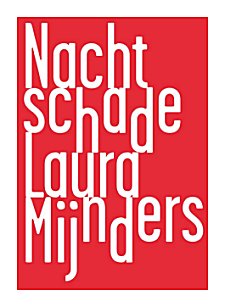
Zondag 26 oktober in Linnaeus Boekhandel in Amsterdam:
Een middag eigentijdse poëzie
met Arthur Lava, Andrea Voigt, Willem van Zadelhoff, Freda Kamphuis en Laura Mijnders
Vijf dichters met een nieuwe bundel bij Uitgeverij Voetnoot.
De dichters introduceren en bevragen elkaar.
Ook dragen ze voor. En hoe!
Adres: Middenweg 29, Amsterdam. Inloop: vanaf 14.30 uur. Aanvang: 15.00 uur.
Toegang: € 5,-. Reserveren via e-mail (info@linnaeusboekhandel.nl),
telefoon (020-4687192) of in de winkel.
Een feest van jewelste – Arthur Lava
Arthur Lava jut ons op om het leven te vieren, het ondenkbare uit te dagen en het beste in onszelf naar boven te halen. Zijn gedichten zijn uitbundig, goed te begrijpen en soms erg geestig. Ze staan vol pakkende regels.
Arthur Lava: “Een walk on the wild side is voor mij wel een echt feest. Een ruig schrijversleven. Jammer genoeg zit daar een levensbekortende kant aan. Bij die gedachte schroef ik de dop toch weer terug op de fles.”
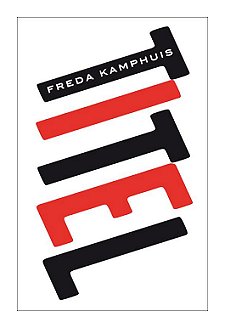 Plankvrouw – Andrea Voigt
Plankvrouw – Andrea Voigt
Andrea Voigt schetst met rake, herkenbare typeringen en met humor een beeld van een dappere, zelfstandige en tegelijkertijd onzekere vrouw. Voor vrouwen is deze bundel ongetwijfeld een feest van herkenning, mannen zullen verrast zijn door dit openhartige kijkje in de ziel van Plankvrouw.
Andrea Voigt: “Plankvrouw is niet buigzaam. Ze is ónbuigzaam. […] Niet iedereen kan Plankvrouw zijn.”
Het ei van Fabergé – Willem van Zadelhoff
Gedichten over wat er is en wat er was, over onthouden en vergeten. Het is poëzie met de sfeer van grofkorrelige foto’s, net scherp genoeg om te zien wat erop staat en vaag genoeg om de verbeelding haar eigen gang te laten gaan.
Willem van Zadelhoff: “Geheugen speelt een rol in mijn poëzie. In een van mijn gedichten laat ik rupsen tegen de muur op kruipen. Dat deed ik vroeger met een vriendje; we bewaarden die beestjes in luciferdoosjes en hielden dan het wereldkampioenschap ‘rupsenkruipen’.”
Titel – Freda Kamphuis
Freda Kamphuis lapt heel wat regels aan haar laars, onder meer door vorm en inhoud op volstrekt eigenzinnige wijze te combineren. Die kruisbestuiving komt overal in haar bundel terug, om te beginnen in de titel, die Titel luidt. Freda Kamphuis: “Mijn hoofd kan zeker als een speeltuin voelen, maar ook als een spookhuis. En alles daar tussenin.”
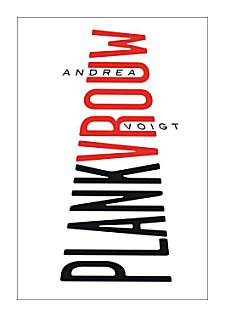 Nachtschade – Laura Mijnders
Nachtschade – Laura Mijnders
De poëzie van de jonge dichteres Laura Mijnders is opvallend doorleefd. Hoewel ze persoonlijke ervaringen en observaties door haar poëzie heen vlecht, blijven haar gedichten zeker niet beperkt tot haar eigen belevingswereld.
Laura Mijnders: “Ik denk dat ik in mijn gedichten een beroep doe op de laatjes die in mijn leven en dat van anderen veelal ongeopend bleven. Schuldgevoelens, het geweten, woede. In mijn werk, op het papier, mag het allemaal vrij zijn.”
De citaten komen uit de Voetnootkrant van najaar 2014, waarin Andrea Voigt de dichters interviewt. Frits Pijlsnijder interviewde Andrea Voigt.
fleursdumal.nl magazine
More in: - Book News, Art & Literature News, Kamphuis, Freda

Alun Lewis
(1915 – 1944)
ALL DAY IT HAS RAINED
All day it has rained, and we on the edge of the moors
Have sprawled in our bell-tents, moody and dull as boors,
Groundsheets and blankets spread on the muddy ground
And from the first grey wakening we have found
No refuge from the skirmishing fine rain
And the wind that made the canvas heave and flap
And the taut wet guy-ropes ravel out and snap,
All day the rain has glided, wave and mist and dream,
Drenching the gorse and heather, a gossamer stream
Too light to stir the acorns that suddenly
Snatched from their cups by the wild south-westerly
Pattered against the tent and our upturned dreaming faces.
And we stretched out, unbuttoning our braces,
Smoking a Woodbine, darning dirty socks,
Reading the Sunday papers – I saw a fox
And mentioned it in the note I scribbled home;
And we talked of girls and dropping bombs on Rome,
And thought of the quiet dead and the loud celebrities
Exhorting us to slaughter, and the herded refugees;
-Yet thought softly, morosely of them, and as indifferently
As of ourselves or those whom we
For years have loved, and will again
Tomorrow maybe love; but now it is the rain
Possesses us entirely, the twilight and the rain.
And I can remember nothing dearer or more to my heart
Than the children I watched in the woods on Saturday
Shaking down burning chestnuts for the schoolyard’s merry play
Or the shaggy patient dog who followed me
By Sheet and Steep and up the wooded scree
To the Shoulder o’ Mutton where Edward Thomas brooded long
On death and beauty – till a bullet stopped his song.
Alun Lewis poetry
fleursdumal.nl magazine
More in: Archive K-L, Lewis, Alun
Martin
Beversluis
Langgewenste dagen van onmacht
De weemoed komt en gaat
met de jaargetijden dan is
zij teleurgesteld dat uit
één zaadje maar één radijsje
groeien kan bang dat het
altijd een ander zal zijn
bij wie ze wegdroomt
iemand die ze net niet
kan zien langgewenste
dagen van onmacht simpele ogen
het luchtkasteel gemakeld met die
vastgoedmagneten zij heeft nog
nooit zoveel gedownload als
sinds het is verboden
laatst nog probeerde zij leven
te downloaden en kreeg de
waarschuwing dat het
uitvoeren van dit programma
tot onverwachte resultaten
kan leiden
ze stopt dat ene zaadje
in de grond
hoopt
dat het dit keer
een bos wordt.
Martin Beversluis
fleursdumal.nl magazine
More in: Archive A-B, Beversluis, Martin
The Sorrows of Young Werther (62) by J.W. von Goethe
“I sit in my grief: I wait for morning in my tears! Rear the tomb, ye friends of the dead. Close it not till Colma come. My life flies away like a dream. Why should I stay behind? Here shall I rest with my friends, by the stream of the sounding rock. When night comes on the hill when the loud winds arise my ghost shall stand in the blast, and mourn the death of my friends. The hunter shall hear from his booth; he shall fear, but love my voice! For sweet shall my voice be for my friends: pleasant were her friends to Colma. “Such was thy song, Minona, softly blushing daughter of Torman. Our tears descended for Colma, and our souls were sad! Ullin came with his harp; he gave the song of Alpin.
The voice of Alpin was pleasant, the soul of Ryno was a beam of fire! But they had rested in the narrow house: their voice had ceased in Selma! Ullin had returned one day from the chase before the heroes fell. He heard their strife on the hill: their song was soft, but sad! They mourned the fall of Morar, first of mortal men! His soul was like the soul of Fingal: his sword like the sword of Oscar. But he fell, and his father mourned: his sister’s eyes were full of tears. Minona’s eyes were full of tears, the sister of car-borne Morar. She retired from the song of Ullin, like the moon in the west, when she foresees the shower, and hides her fair head in a cloud. I touched the harp with Ullin: the song of morning rose! “Ryno. The wind and the rain are past, calm is the noon of day. The clouds are divided in heaven. Over the green hills flies the inconstant sun. Red through the stony vale comes down the stream of the hill. Sweet are thy murmurs, O stream! but more sweet is the voice I hear. It is the voice of Alpin, the son of song, mourning for the dead! Bent is his head of age: red his tearful eye. Alpin, thou son of song, why alone on the silent hill? why complainest thou, as a blast in the wood as a wave on the lonely shore? “Alpin. My tears, O Ryno! are for the dead my voice for those that have passed away. Tall thou art on the hill; fair among the sons of the vale. But thou shalt fall like Morar: the mourner shall sit on thy tomb. The hills shall know thee no more: thy bow shall lie in thy hall unstrung! “Thou wert swift, O Morar! as a roe on the desert: terrible as a meteor of fire. Thy wrath was as the storm. Thy sword in battle as lightning in the field. Thy voice was as a stream after rain, like thunder on distant hills. Many fell by thy arm: they were consumed in the flames of thy wrath.
But when thou didst return from war, how peaceful was thy brow. Thy face was like the sun after rain: like the moon in the silence of night: calm as the breast of the lake when the loud wind is laid. “Narrow is thy dwelling now! dark the place of thine abode! With three steps I compass thy grave, O thou who wast so great before! Four stones, with their heads of moss, are the only memorial of thee. A tree with scarce a leaf, long grass which whistles in the wind, mark to the hunter’s eye the grave of the mighty Morar. Morar! thou art low indeed. Thou hast no mother to mourn thee, no maid with her tears of love. Dead is she that brought thee forth. Fallen is the daughter of Morglan. “Who on his staff is this? Who is this whose head is white with age, whose eyes are red with tears, who quakes at every step? It is thy father, O Morar! the father of no son but thee. He heard of thy fame in war, he heard of foes dispersed. He heard of Morar’s renown, why did he not hear of his wound? Weep, thou father of Morar! Weep, but thy son heareth thee not. Deep is the sleep of the dead, low their pillow of dust. No more shall he hear thy voice, no more awake at thy call. When shall it be morn in the grave, to bid the slumberer awake? Farewell, thou bravest of men! thou conqueror in the field! but the field shall see thee no more, nor the dark wood be lightened with the splendour of thy steel. Thou has left no son. The song shall preserve thy name. Future times shall hear of thee they shall hear of the fallen Morar!
The Sorrows of Young Werther (Die Leiden des jungen Werther) by J.W. von Goethe. Translated by R.D. Boylan.
To be continued
fleursdumal.nl magazine
More in: -Die Leiden des jungen Werther, Goethe, Johann Wolfgang von
tussen zwaarte, typografische collage, 2014, Freda Kamphuis
fleursdumal.nl magazine
More in: Freda Kamphuis, Freda Kamphuis, Kamphuis, Freda
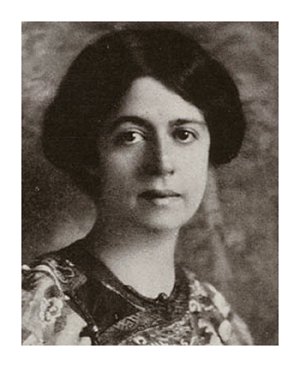
Eunice Tietjens
(1884 – 1944)
The Altar of Heaven
Beneath the leaning, rain-washed sky this great white
circle–beautiful!
In three white terraces the circle lies, piled one on
one toward Heaven. And on each terrace the
white balustrade climbs in aspiring marble, etched
in cloud.
And Heaven is very near.
For this is worship native as the air, wide as the
wind, and poignant as the rain,
Pure aspiration, the eternal dream.
Beneath the leaning sky this great white circle!
(Peking)
Eunice Tietjens poetry
fleursdumal.nl magazine
More in: Archive S-T, Tietjens, Eunice
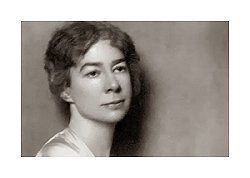
Sara Teasdale
(1884 – 1933)
“It Is Not a Word”
It is not a word spoken,
Few words are said;
Nor even a look of the eyes
Nor a bend of the head,
But only a hush of the heart
That has too much to keep,
Only memories waking
That sleep so light a sleep.
Sara Teasdale poetry
fleursdumal.nl magazine
More in: Archive S-T, Teasdale, Sara

The Sorrows of Young Werther (61) by J.W. von Goethe
“Star of descending night! fair is thy light in the west! thou liftest
thy unshorn head from thy cloud; thy steps are stately on thy hill. What
dost thou behold in the plain? The stormy winds are laid. The murmur of
the torrent comes from afar. Roaring waves climb the distant rock. The
flies of evening are on their feeble wings: the hum of their course is
on the field. What dost thou behold, fair light? But thou dost smile and
depart. The waves come with joy around thee: they bathe thy lovely hair.
Farewell, thou silent beam! Let the light of Ossian’s soul arise!
“And it does arise in its strength! I behold my departed friends. Their
gathering is on Lora, as in the days of other years. Fingal comes like a
watery column of mist! his heroes are around: and see the bards of song,
gray-haired Ullin! stately Ryno! Alpin with the tuneful voice: the soft
complaint of Minona! How are ye changed, my friends, since the days of
Selma’s feast! when we contended, like gales of spring as they fly along
the hill, and bend by turns the feebly whistling grass.
“Minona came forth in her beauty, with downcast look and tearful eye.
Her hair was flying slowly with the blast that rushed unfrequent from
the hill. The souls of the heroes were sad when she raised the tuneful
voice. Oft had they seen the grave of Salgar, the dark dwelling of
white-bosomed Colma. Colma left alone on the hill with all her voice of
song! Salgar promised to come! but the night descended around. Hear the
voice of Colma, when she sat alone on the hill!
“Colma. It is night: I am alone, forlorn on the hill of storms. The wind
is heard on the mountain. The torrent is howling down the rock. No hut
receives me from the rain: forlorn on the hill of winds!
“Rise moon! from behind thy clouds. Stars of the night, arise! Lead me,
some light, to the place where my love rests from the chase alone! His
bow near him unstrung, his dogs panting around him! But here I must
sit alone by the rock of the mossy stream. The stream and the wind roar
aloud. I hear not the voice of my love! Why delays my Salgar; why the
chief of the hill his promise? Here is the rock and here the tree! here
is the roaring stream! Thou didst promise with night to be here. Ah!
whither is my Salgar gone? With thee I would fly from my father, with
thee from my brother of pride. Our race have long been foes: we are not
foes, O Salgar!
“Cease a little while, O wind! stream, be thou silent awhile! let my
voice be heard around! let my wanderer hear me! Salgar! it is Colma who
calls. Here is the tree and the rock. Salgar, my love, I am here! Why
delayest thou thy coming? Lo! the calm moon comes forth. The flood is
bright in the vale. The rocks are gray on the steep. I see him not
on the brow. His dogs come not before him with tidings of his near
approach. Here I must sit alone!
“Who lie on the heath beside me? Are they my love and my brother? Speak
to me, O my friends! To Colma they give no reply. Speak to me: I am
alone! My soul is tormented with fears. Ah, they are dead! Their swords
are red from the fight. O my brother! my brother! why hast thou slain my
Salgar! Why, O Salgar, hast thou slain my brother! Dear were ye both to
me! what shall I say in your praise? Thou wert fair on the hill among
thousands! he was terrible in fight! Speak to me! hear my voice! hear
me, sons of my love! They are silent! silent for ever! Cold, cold, are
their breasts of clay! Oh, from the rock on the hill, from the top of
the windy steep, speak, ye ghosts of the dead! Speak, I will not be
afraid! Whither are ye gone to rest? In what cave of the hill shall
I find the departed? No feeble voice is on the gale: no answer half
drowned in the storm!
The Sorrows of Young Werther (Die Leiden des jungen Werther) by J.W. von Goethe. Translated by R.D. Boylan.
To be continued
fleursdumal.nl magazine
More in: -Die Leiden des jungen Werther, Goethe, Johann Wolfgang von
Thank you for reading Fleurs du Mal - magazine for art & literature